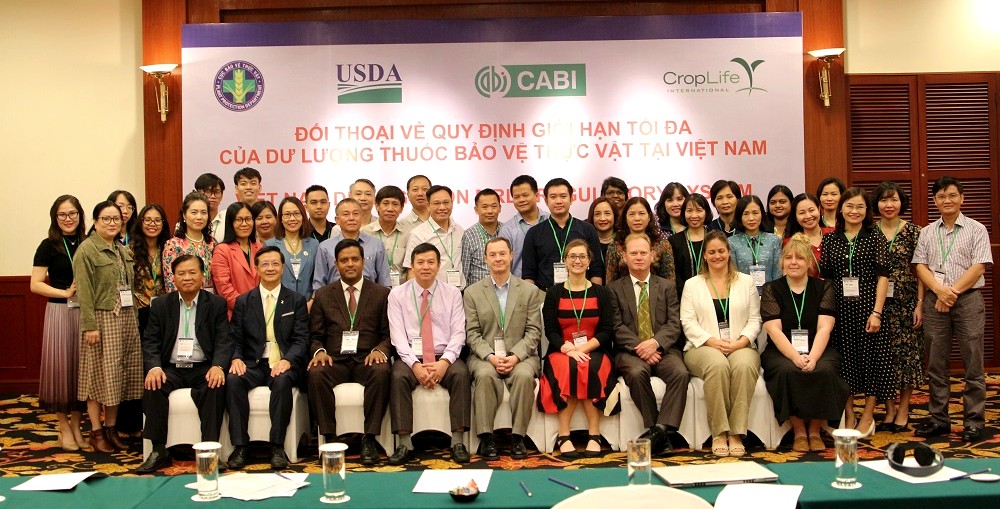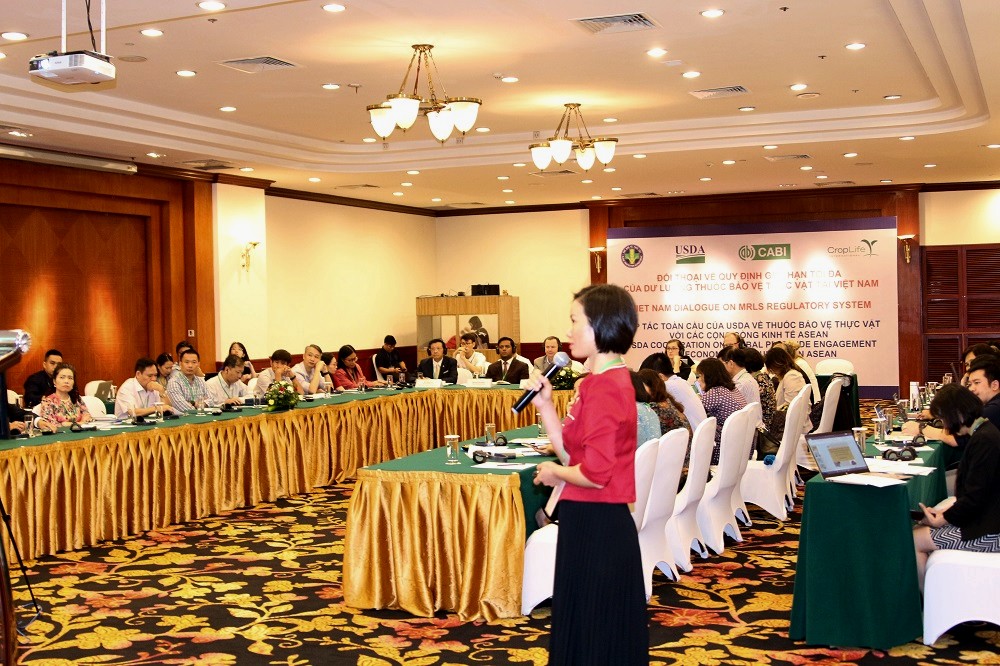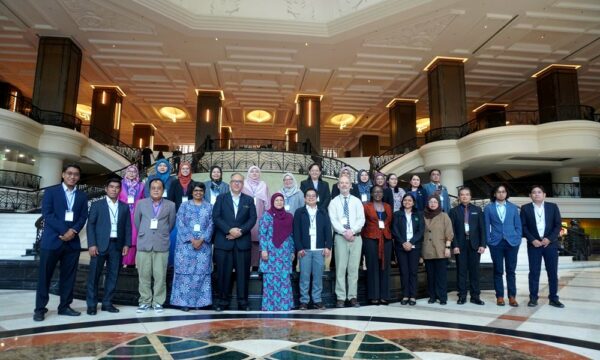
Vietnam is a country prominent for its rich history, impressive landscapes, and delectable cuisine. It is not only making headlines for its tourism but also for its collaborative approach to food safety and regulations.
The country is a major exporter and importer of agricultural products around the globe. Vietnam’s agricultural exports in 2021, for example, were worth just over US $5.7 billion with top goods traded including walnuts, coffee, and rice.
It is also one of the world’s largest producers of peppercorn exporting an estimated 220,000 tonnes a year to over 100 countries including the high-value markets in Europe and the United States.
Vietnam’s regulatory system for Maximum Residue Levels (MRLs)
The United States Department of Agriculture – Foreign Agricultural Service (USDA-FAS), with support from CABI, organised an in-person meeting in Vietnam to discuss the Maximum Residue Levels (MRLs) regulatory system in the country.
MRLs is the maximum concentration of a pesticide residue in or on food or feed of plant and animal origin that is legally tolerated when a plant protection product (PPP) is applied correctly.
The meeting, held in Hanoi, was a ‘hybrid’ event in which the Plant Protection Department, Ministry of Agriculture and Rural Development (PPD-MARD) as co-host along with Vietnam Food Administration (VFA) and Croplife Asia participated.
In total, 124 officials of regulatory agencies from Vietnam (86 virtual, 38 in-person) attended the meeting and shared their experience to streamline and make the existing MRLs regulatory system more efficient.
Greater harmonization and collaboration on regulatory systems
This meeting was held in continuation of an agreement which USDA-FAS signed with CABI in March to work in partnership towards greater harmonization and collaboration on regulatory systems in The Association of Southeast Asian Nations (ASEAN) member countries.
The meeting also marked a continuation of the USDA’s global pesticide engagement initiative and aimed to strengthen the country’s capacity to regulate plant protection products based on science, risk-based approaches, and international standards.

Dr Huynh Tan Dat, Director General of PPD, urged participants to make the most of the opportunity to engage in a meaningful exchange of ideas with experts.
Guiding principles for advancing harmonized MRLs standards
He expressed his gratitude, on behalf of PPD-MARD, to USDA-FAS, CABI and CropLife Asia, for organizing the dialogue which will help to collaboratively establish a set of guiding principles for advancing harmonized MRLs standards.
Such standards are meant to be aligned with the Codex Alimentarius (CODEX) international food standards, guidelines, and codes of practice – which contribute to the safety, quality, and fairness of the international food trade – and ASEAN members.
Ralph Bean, Agricultural Counsellor of USDA-FAS, during his welcome remarks, stated that Vietnam is an important agricultural market, serving global needs. Gaps within the regulatory system may have a negative impact on trade volumes, which, in turn, can affect the well-being and livelihoods of farmers in Vietnam.
However, USDA-FAS is willing to extend technical support to Vietnam to further understand and make its existing MRL regulatory system more efficient.
Practical solutions to overcome diverging MRLs
Ricky Ho, Director Science and Regulatory Affairs, Crop Life Asia, shared the science behind differences of MRLs level across countries and regions, as well as practical solutions to overcome diverging MRLs.
He also spoke about the concept of import tolerance (Import MRL) and trade implications due to missing MRLs and unharmonized pesticide management that cause trade barriers to the global market.
Dr Vuong Truong Giang, Head of Food Safety Division, PPD-MARD, meanwhile, shared the roles and responsibilities of PPD on the handling of pesticides and on the regulation of MRLs standards. He gave an orientation on the existing procedure which is being followed by PPD and VFA-Ministry of Health (MOH) for the establishment of MRLs standards in Vietnam.
Ms Nguyen Thi Oanh, Official VFA-MOH, presented the coordination between agencies in developing regulations on MRLs residency in food. She shared that the MOH is responsible to develops and promulgates national technical regulations or regulations on safety norms and limits for all food products.

Revise their regulations covering MRLs by end of 2024
At the end of the workshop, the MOH and PPD agreed, with technical support from USDA, to revise their regulations covering MRLs by the end of 2024. Furthermore, Vietnam agreed to move forward with a pilot Import MRL programme between the US and Vietnam for priority crops from both countries.
The collaborative efforts between USDA, CABI, PPD-MARD, VFA-MOH and CropLife Asia aimed to bridge/address the regulatory gaps in its MRL system, safeguard public health, and promote international trade.
This proactive approach will not only benefit consumers but also support the country’s agricultural sector and economic growth of Vietnam.
This meeting has set a clear path forward for future engagement with Vietnam under this bilateral programme to support the country’s regulatory system harmonized with international standards.
Additional information
Main image: The meeting and shared experiences to streamline and make the existing MRLs regulatory system in Vietnam more efficient (Credit: CABI).
Authors
Kirk Shirley – CABI’s Head of Strategic Partnerships, the Americas
Dr Sabyan Faris Honey – Project Manager, CABI
Contributor
Saqib Ali – Communication Officer, CABI
For more information, please contact:
Michelle Flavin – USDA – FAS
Relevant stories
‘Agreement strengthens food security and sustainable food system in Vietnam.’
‘CABI’s expertise on digital pest management showcased on Vietnamese TV.’
‘Introducing the “AI Plant Doctor” at the AI Innovation Hub, Vietnam.’
Related News & Blogs
Joint efforts towards strengthening harmonization in the pesticide regulatory landscape of the Philippines
CABI together with the United States Department of Agriculture (USDA) and the Fertilizer and Pesticide Authority (FPA) of the Philippines have produced working manuals to help strengthen harmonization of the pesticide landscape in the Philippines. The…
23 May 2025




